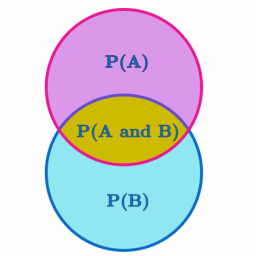Ordered pairs
Given: Set T = {(1,2), (2,3), (3,4), (4,5), (5,5), (6,7), (6,6), (7,8), (8,9), (9,9), (9, 10), (11,12), (12,13), (13,14), (15,16),
(16,16), (17,18), (18,19), (20,21)} Find the probability of having an ordered pair wherein the second element is greater than the first element.
(16,16), (17,18), (18,19), (20,21)} Find the probability of having an ordered pair wherein the second element is greater than the first element.
Final Answer:

Tips for related online calculators
Need help calculating sum, simplifying, or multiplying fractions? Try our fraction calculator.
Would you like to compute the count of combinations?
Would you like to compute the count of combinations?
You need to know the following knowledge to solve this word math problem:
combinatoricsalgebraarithmeticnumbersGrade of the word problem
Related math problems and questions:
- Bivariate data set
 Here is a bivariate data set in which you believe y to be the response variable. x y 51.4 44.8 60.2 46.6 60.1 46.8 45.8 46.3 37.4 41.8 72.4 52.5 60 48.2 67.5 49.5 60.9 49.8 51.1 45.7 62.7 49.6 194.9 84.2 Make a scatter plot of this data. Which point is an
Here is a bivariate data set in which you believe y to be the response variable. x y 51.4 44.8 60.2 46.6 60.1 46.8 45.8 46.3 37.4 41.8 72.4 52.5 60 48.2 67.5 49.5 60.9 49.8 51.1 45.7 62.7 49.6 194.9 84.2 Make a scatter plot of this data. Which point is an - Five element
 The geometric sequence is given by quotient q = 1/2 and the sum of the first six members S6 = 63. Find the fifth element a5.
The geometric sequence is given by quotient q = 1/2 and the sum of the first six members S6 = 63. Find the fifth element a5. - Set of coordinates
 Consider the following ordered pairs that represent a relation. {(–4, –7), (0, 6), (5, –3), (5, 2)} What can be concluded about the domain and range for this relation? A. The domain is the y values of the ordered pairs. B. The range is the set of output v
Consider the following ordered pairs that represent a relation. {(–4, –7), (0, 6), (5, –3), (5, 2)} What can be concluded about the domain and range for this relation? A. The domain is the y values of the ordered pairs. B. The range is the set of output v - Families 2
 Seven hundred twenty-nine families have six children each. The probability of a girl is 1/3, and the likelihood of a boy is 2/3. Find the number of families having two girls and four boys.
Seven hundred twenty-nine families have six children each. The probability of a girl is 1/3, and the likelihood of a boy is 2/3. Find the number of families having two girls and four boys. - A single
 A single, standard number cube is tossed. What is the probability of getting a number greater than 3?
A single, standard number cube is tossed. What is the probability of getting a number greater than 3? - Prism
 Calculate the height of the prism having a surface area of 448.88 dm² wherein the base is square with a side of 6.2 dm. What will be its volume in hectoliters?
Calculate the height of the prism having a surface area of 448.88 dm² wherein the base is square with a side of 6.2 dm. What will be its volume in hectoliters? - Remainders
 It is given a set of numbers { 200; 261; 331; 345; 487; 554 }. Divide these numbers by number 80 and determine a set of remainders. As a result, write the sum of these remainders.
It is given a set of numbers { 200; 261; 331; 345; 487; 554 }. Divide these numbers by number 80 and determine a set of remainders. As a result, write the sum of these remainders.
